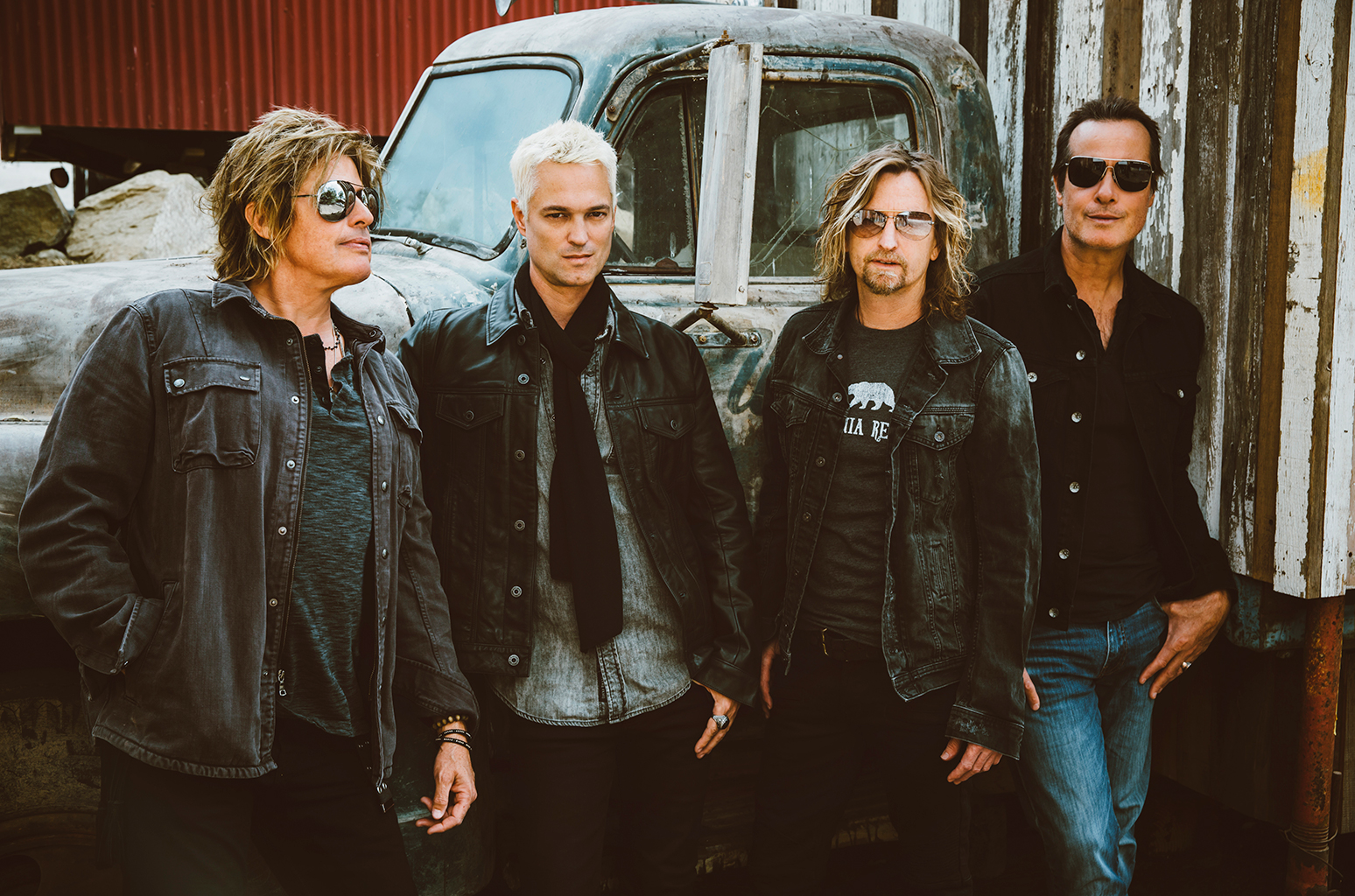It’s tragic when line-up issues plague a decent band. It’s even more tragic when said line-up issues plague the same decent band at the tail end of their relevancy. Both seem to be the case with Stone Temple Pilots. The firing of Scott Weiland for his well-publicized drug addictions, and replacing him with Linkin Park’s Chester Bennington, brought on the kind of drama no fan wants to put up with. Much less if the music doesn’t deliver. Unfortunately, the passing of Weiland in 2015 and Bennington in 2017 didn’t help matters.
I was a little surprised to hear the DeLeo brothers announce Stone Temple Pilots would continue to tour and put out new music.
Depending on what you thought of Bennington’s tenure, Weiland-less endeavors from the DeLeos (such as Talk Show and Army Of Anyone) have never really set the world on fire. One has to commend them for their perseverance. Stone Temple Pilots’ last full-length effort barely put a dent on the charts and excited long-time fans even less. Putting out a new album in 2018 with X Factor alum Jeff Gutt behind the mic would be controversial if it didn’t seem so (for the lack of a better word) desperate.

There’s absolutely nothing wrong with wanting to move forward after the exit of an integral figure in a band. Groups like Van Halen and AC/DC went on to have plenty of commercial success with new frontmen. More recently and relative, Alice In Chains continues to put out decent enough music without Layne Staley. The real issue is how it’s handled. In order to move forward with a new singer and not come off desperate, a band has to own the change.
If Stone Temple Pilots proves anything, its how sometimes the easy way out is the best way out.
The album kicks off with “Middle Of Nowhere” and it sounds like Stone Temple Pilots doing the best impression of Velvet Revolver’s “Sucker Train Blues”. This is the first red flag. Next up is “Guilty” and the lead single “Meadow” with their Aerosmith-meet-Led Zeppelin 70s rock vibes STP were famous for. The rest of the album continues at same pace with little variation. It’s never a good sign when an album shows you it’s hand in the first 3 songs.

Stone Temple Pilots is no lean affair either. Due to 9 out of 12 songs having the same speed and energy and the other 3 being nearly the same song, the album feels a lot longer than it is. Gone are the days when STP would fill albums with 1960s experimentation, only taking a break for a radio hit. Instead we get a bloated album of generic would-be non-charting 4th singles.
With so little variation the real problem becomes perfectly clear: Stone Temple Pilots lacks conviction and soul.
The DeLeo Brothers insist Stone Temple Pilots will continue as a functioning band, releasing albums and touring. But for the first album with a 3rd singer, Stone Temple Pilots feels closer to a Scott Weiland tribute act you’d find in an off-strip Las Vegas casino than an actual band. Gutt is a great singer and all but his calculated Weiland impersonation is so jarring, I can’t take a single note seriously. It comes off so empty, it makes me wonder if the DeLeos would have re-recorded all their hits if it weren’t for having to pay royalties to the Weiland estate.
Stone Temple Pilots isn’t a bad album by any means. The production is gorgeous! Guitars are larger than life, percussion crisp and tight, and Robert DeLeo’s bass has never sounded better. But the overly generic songs and Gutt’s Weiland schtick just makes me want to listen to old Stone Temple Pilots albums.

How can a band insist they’re moving forward if they constantly remind you the previous albums were better?
It’s a question apparent from the very beginning and never gets an answer. I want to give props to these guys for not letting the deaths of 2 frontmen keeping them from doing what they love. But Stone Temple Pilots isn’t a step forward or even a trip down memory lane. It’s an average exercise in beating the proverbial dead horse. Kretz and the DeLeos are incredible musicians and have never faltered in their delivery. Gutt is also an amazing singer and deserves a platform where he can prove himself on his own merits instead of channeling someone else.
Sonically speaking, this album may be the best thing Stone Temple Pilots have done without Weiland, but for all the wrong reasons. Just as the album’s obligatory ballad states, there’s an art to letting go and it’s obvious Stone Temple Pilots have yet to learn it.


